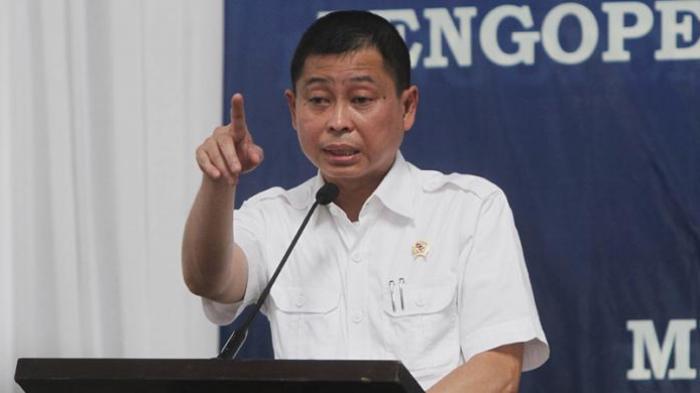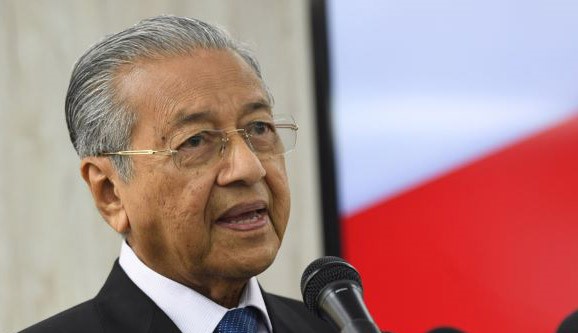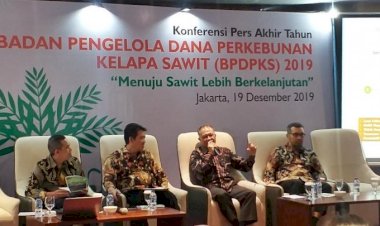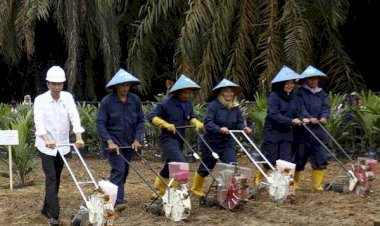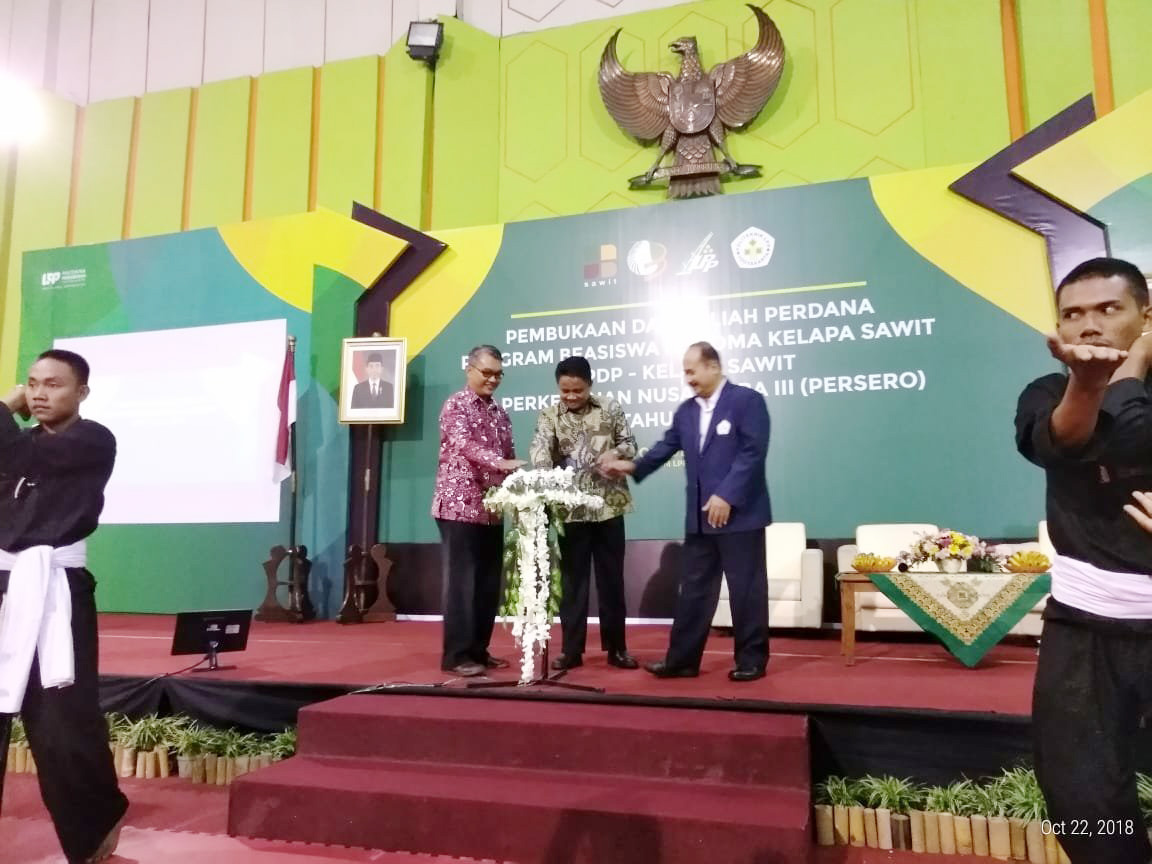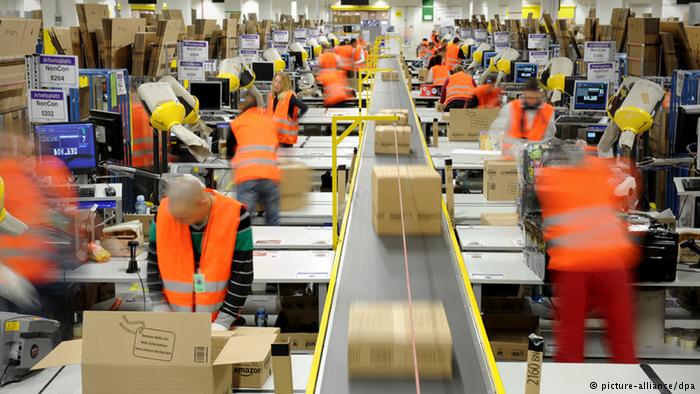BPDPKS Collects Rp6,4 Trillion in The First Semester of 2018
President Director of the Indonesian Oil Palm Estate Fund (BPDPKS) Dono Boestami revealed that BPDPKS has collected Rp6,4 trillion in levies imposed on palm oil exports in the first semester of 2018.
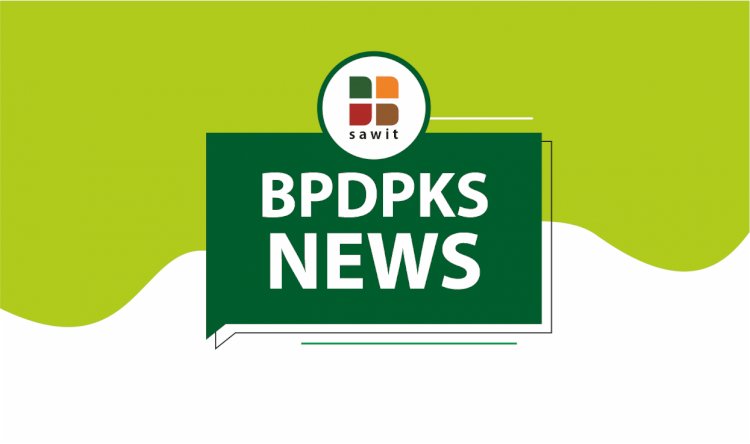
President Director of the Indonesian Oil Palm Estate Fund (BPDPKS) Dono Boestami revealed that BPDPKS has collected Rp6,4 trillion in levies imposed on palm oil exports in the first semester of 2018. Meanwhile, the collected funds in 2017 were recorded at Rp14,2 trillion.
Dono’s statement came as he delivered speech on the National Seminar on Indonesian Oil Palm with the theme “Strengthening BPDPKS Institutional Foundation to Support Indonesian Sustainable Palm Oil, Reduce the Poverty Rate, and Improve People’s Welfare” at Borobudur Hotel, Jakarta, Monday (20/8/2018).
Attendees at the seminar included Coordinating Minister for Economic Affairs Darmin Nasution, Finance Minister Sri Mulyani Indrawati, and Trade Minister Enggartiasto Lukita. “In terms of funds management, in 2017 BPDPKS earned Rp505 billion and Rp380 billion until the first semester of 2018 from placement of the fund. BPDPKS has disbursed Rp10,6 trillion in 2017 and Rp4,4 trillion in the first semester of 2018,” Dono said.
Apart from collecting fund, BPDPKS has also played its role to develop sustainable palm oil, including to support oil palm tree replanting program. In the first semester of 2018, BPDPKS has disbursed grants of more than Rp288 billion to 5.384 smallholder farmers for total area of 12.063 hectare. In order to increase effectiveness of replanting program, together with Ministry of Agriculture, Ministry of Finance, and Coordinating Ministry of Economic Affairs, BPDPKS has perfected regulations to speed up fund disbursement without losing accountability.
In other sector, BPDPKS also develops human resources in oil palm plantation. Since 2016 until the first semester of 2018, BPDPKS has organized training for 4.529 smallholder farmers, 813 farmers’ children, 930 plantation vocational high school teachers, and 540 cooperative members. During that time, 720 smallholder farmers’ children has been granted student financial aid that helps to complete diploma school of palm oil.
The aim of this program is to provides oil palm plantation with well-trained human resources that were needed to implement good agricultural governance. Meanwhile, in order to support palm oil research and development projects, BPDPKS has provided financial aid to 115 research in 2016 until the first semester of 2018 conducted by 37 universities/research institutions that involved 127 senior researchers and 146 young researchers. During that period, it has produced 101 scientific publications, 11 patents, and three books. The aid was disbursed to various sectors, not limited only to upstream but also to downstream field, from appropriate technologies to utilization of information technology.
Some of flagship research funded by BPDPKS are bioplastic production from oil palm empty fruit bunch, oil palm wood processing, and production of palm oil-based foaming agent as fire extinguisher. Promotional activities has also been done to promote the good name of palm oil for both domestic and overseas market.
On a domestic scale, the aim of this promotion is to raise public awareness on palm oil, including campaign to millenial generation. “On an international scale, we focused on how to enhance brand value and to expand palm oil market. We involved businesspeople in the industry and also Ministry of Trade,” Dono said. ***


